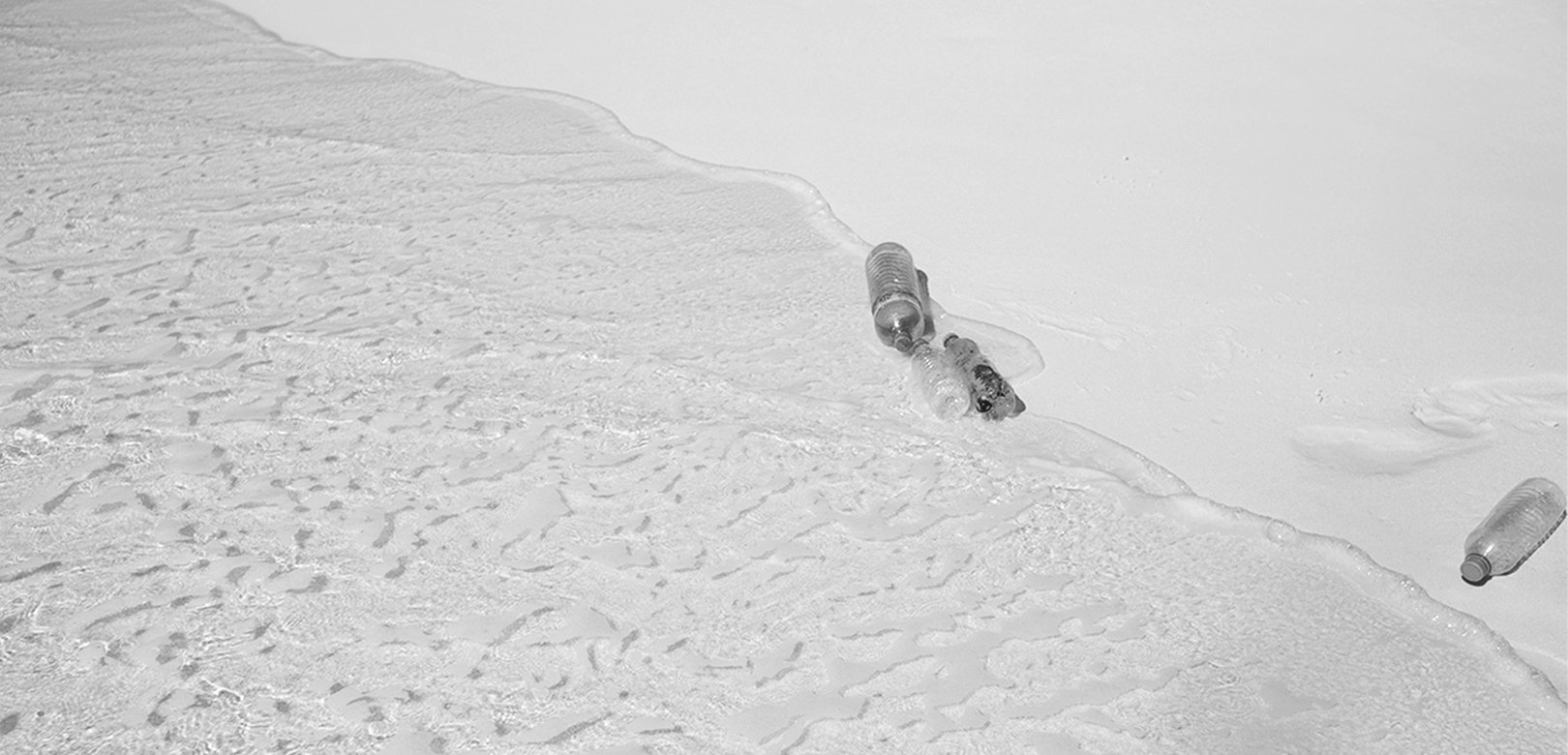The Network: Ian Urbina
Ahead of his New York Times best seller, we revisited The Outlaw Ocean with regular Parley speaker Ian Urbina
Published in The New York Times in 2015, journalist Ian Urbina’s The Outlaw Ocean series exposed the shocking practices at the heart of the global illegal, unreported and unregulated (IUU) fishing industry. Beyond driving the current mass extinction of oceans species, these rogue fleets are responsible for modern slavery, deliberate fuel and garbage dumping, appalling working conditions and even outright murder.
As Ian neatly summed it up in one piece, “More than two-thirds of the planet is covered by water, and much of that liquid expanse is ungoverned and potentially ungovernable. Criminal enterprise has flourished in the breach.”
The Outlaw Ocean reporting, almost all done offshore, took Ian across 5 seas and 14 countries in Africa, Asia, the Mediterranean, South America, and the Middle East. It resulted in 8 front-page stories in the Times and a forthcoming book published by Knopf Doubleday. The reporting, which is ongoing, was also bought by Leonardo DiCaprio and Netflix who are working presently on a feature film and a 7-part documentary series.
Ian has won a Pulitzer Prize for Breaking News and a George Polk Award for Foreign Reporting. In 2014, his article The Secret Life of Passwords was nominated for an Emmy Award. He has degrees in history and cultural anthropology from Georgetown University and the University of Chicago. Before joining The New York Times, Ian was a Fulbright Fellow in Cuba and he also wrote about the Middle East and Africa for various outlets including the Los Angeles Times, Harper’s and Vanity Fair. He lives in Washington D.C. with his family.
The global black market for seafood is valued at more than $20 billion, and one in every five fish consumed globally is caught illegally.
Besides devastating the world’s oceans through destructive practices like bottom-trawling, the fishing industry also contributes to marine pollution and takes a terrible toll on workers who endure appalling conditions at sea.
For one article, Ian spent time onboard a maritime police patrol boat around the tiny Pacific Ocean nation of Palau. Their fight against illegal fishing shows just how big a problem it is, and how hard it is to tackle. We caught up with Ian to learn more.
"Palau has emerged as a testing ground for some of the technology — including drones, satellite monitoring and military-grade radar — that might finally empower countries to spot and arrest those who prowl the seas with impunity."
Ian Urbina — The Outlaw Ocean
Parley: So tell us about Palau, and what they’re up against.
The story of Palau is many ways a microcosm of the larger problem. It’s a tiny archipelago nation with a landmass the size of Philadelphia, but jurisdiction over 230,000 square miles of ocean. It has only one patrol vessel and is subject to really persistent poaching by lots of countries: Taiwan, the Philippines, China and Vietnam, amongst others.
Have things gotten better or worse since your article?
One thing that has emerged in the past year is that Palau has had a pretty honest reckoning with its own complicity in the problem of overfishing in its waters – especially in the nearby reefs. The big, further out policing challenges that I initially encountered with foreign poaching in the deeper waters, those problems remain. Palau recently got a new patrol boat – they previously only had one real police cutter that could really do real patrolling. They now have two. They're moving in the right direction. They also have help from lots of different parties, Google and the Australian Navy, and the US Navy – but I still think it's a pretty uphill fight.
That’s kind of depressing, because it seems we’re making real progress with Marine Protected Areas, like the one recently created by Mexico.
They say reporters don't know anything, we just know people who know things – and what I hear from smart people as the critique of marine protected areas, is that, indeed, they're essential. They’re kind of key for tackling lots of problems, not just the overfishing problem, but climate change more generally. At the same time, as you say, number one, if you create a marine protected area and then don't police it you could make matters worse because it becomes, in the view of poachers, a freebie zone where the fish are going to get more plentiful because the law abiding folks don't go there. The shelves are stocked better for your taking. It almost incentivizes poachers if they're not policed.
So on that note, one bright spot in the Palau story is the emergence of new technology and some of the organizations working to help places like Palau. For you, what's the most promising development?
I'm prone to doom and gloom, and I would want to level that a little bit by saying I do think in many ways Palau is an inspiring example, even though I think it is an uphill fight. I think they're fighting the right fight and in the right way, and what that has meant is they have a government that should have, for the last five, six years, has consistently embraced science-driven measures that will, and should have, lasting effect on preserving their waters.
Whether that's limiting the number of fish aggregating devices, whether it's banning shark finning, whether it's setting aside a no-fish zone, or a limited fishing zone, or an MPA, whether it's tackling on tourism industry, whether it's engaging in really smart operations for policing. I think all those things are really a road map that other small countries can and should look to.
In terms of technology, I think my own sense is that unless you're talking about military grade drones, they’re not technologically to a place yet where they're effective for policing large areas of marine protected waters. Partially because of battery life, partially because of technical skills needed in flying them, partially because of the camera view. Even if you do a 360 cam, it's sort of looking down a straw type experience. It's a very narrow view of what you're seeing.
I've heard from scientists that sonar buoys are, in terms of tracking, more promising. But at the end of the day it will probably be the stuff that Google and SkyTruth are doing, which is largely satellite based, that will help the most. Using satellites, they are watching all those dots and looking for patterns that indicate misbehavior, and I think that's a really promising front.
"We tend to think of fish as an ever-regenerating crop, there forever for our taking."
Ian Urbina — The Outlaw Ocean
So what can people do in the meantime – is the main thing just not to eat any fish, or when you travel on holidays to places like this to make sure that you're traveling responsibly and going to responsible tour operators?
I do think everyone's going to make their own decisions about their diet. That's a fundamentally personal decision, and you have to reckon with the politics of what you buy and what you consume, whether you're comfortable with what goes into those things.
I guess on a general level what I hear often, I find compelling, is taking time to think about what you're consuming and then thinking about is there a version of that product that I've checked out and I think is better than others. And with fish, there's this Monterey Bay report card that specializes in ranking these matters in the realm of fish that is or is not good to consume based on different criteria. It's all spelled out there, and that's what they specialize in doing. So if you're a fish eater then that's certainly a place to check out.
Tourism is just another type of consumption, it's consumption of activity and time. Again, I think thinking about, and just spending a little bit of time before you launch, trying to do a little research on what are some of the critiques of that particular activity, and am I okay with that, and are there alternatives.
Lessons from The Outlaw Ocean
STOWAWAYS AND CRIMES ABOARD A SCOFFLAW SHIP
“Murders regularly occur offshore — thousands of seafarers, fishermen or sea migrants die under suspicious circumstances annually, maritime officials say — but culprits are rarely held accountable. No one is required to report violent crimes committed in international waters.”
“Ships intentionally dump more engine oil and sludge into the oceans in the span of three years than that spilled in the Deepwater Horizon and Exxon Valdez accidents combined, ocean researchers say, and emit huge amounts of certain air pollutants, far more than all the world’s cars.”
“Commercial fishing, much of it illegal, has so efficiently plundered marine stocks that the world’s population of predatory fish has declined by two thirds.”
‘SEA SLAVES’: THE HUMAN MISERY THAT FEEDS PETS AND LIVESTOCK
“The average pet cat in the United States eats 30 pounds of fish per year, about double that of a typical American.”
“Thailand’s commercial fishing fleet consists predominantly of bottom trawlers, called the strip-miners of the sea because they use nets weighted to sink to the ocean floor and ensnare almost everything in their path.”
A RENEGADE TRAWLER, HUNTED FOR 10,000 MILES BY VIGILANTES
“Industrial-scale violators of fishing bans and protected areas are a main reason more than half of the world’s major fishing grounds have been depleted and by some estimates over 90 percent of the ocean’s large fish like marlin, tuna and swordfish have vanished.”
“Gillnets are dropped to the sea floor and form mesh walls sometimes many miles long. The nets are illegal in many parts of the world because they are undiscerning.”
Images: Adam Dean for The New York Times; Simon Ager for Sea Shepherd Global



































Ahead of the launch of his forthcoming book, we revisit The Outlaw Ocean with regular Parley speaker Ian Urbina.